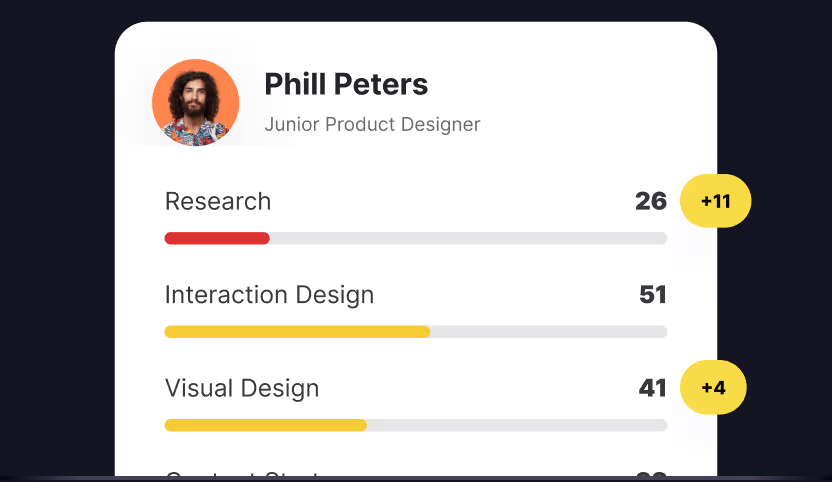My background
As a UX Researcher at a Chicago-based programmatic advertising software company, my professional responsibilities span a wide spectrum of research activities. My day to day work involves conducting moderated interviews, designing unmoderated studies, creating task flows, analyzing user flows, and diving into quantitative metrics to understand how users interact with our platform.
I often describe my role in simplified terms: "I find problems, solve problems, and send them to someone else to fix." This lighthearted description captures just a fraction of my responsibilities, but it reflects my core mission of identifying user challenges and crafting evidence-based solutions that enhance product performance.
While I had established a solid foundation in research methodologies through my Google UX certification, I recognized that my professional growth required a more sustainable, integrated approach to continuous learning. However, like many professionals in demanding roles, I faced a significant obstacle: finding time for skill development without sacrificing work performance or personal time.
My challenge
Despite being a self-described "lifelong learner," my approach to professional development had largely been reactive and fragmented. When faced with a specific challenge at work, I would search for articles and resources that provided immediate solutions, but this created several significant obstacles:
- Disconnected knowledge acquisition: Without structure, I was collecting isolated pieces of information without a cohesive framework
- Time constraints: As a full-time professional, I could not dedicate months to comprehensive courses or stay up until 2-3 AM studying as I had during my certification
- Knowledge retention issues: The "just in time" learning approach provided immediate solutions but did not contribute to long-term skill development
- Cross-functional collaboration barriers: While strong in research, I needed broader UX knowledge to effectively collaborate with designers and product teams
- Leadership development needs: As my role evolved, I needed to strengthen my strategic thinking and mentorship capabilities
These challenges led me to search for a more structured, time-efficient learning approach. My search query "learning UX in 5 minutes a day" reflected my core need: finding a way to make professional development sustainable within my existing workflow.
Finding my solution
My discovery of Uxcel came from this specific search for time-efficient learning. The platform immediately resonated with my philosophy that "little by little, a little becomes a lot." This principle had guided my approach to many challenges, but I had struggled to apply it effectively to my own professional development.
Committing to just 5-20 minutes of daily learning seemed manageable, even within my packed schedule. This micro-commitment approach allowed me to integrate learning into my existing routine without feeling overwhelmed by additional obligations.
What distinguished Uxcel from my previous learning experiences was its structured, retention-focused approach. Unlike the scattered articles and resources I had previously relied on, the platform provided a comprehensive framework that built knowledge systematically while requiring minimal time investment.
The interactive nature of the platform transformed passive consumption into active learning. The quiz format forced engagement with the material, and the review mechanism for incorrect answers significantly enhanced knowledge retention. When I missed a question, the platform prompted me to review the concept, reinforcing the learning process in a way that had not been present in my self-directed study.
Effect on my career
The impact of this structured micro-learning approach extended far beyond knowledge acquisition, creating ripple effects across multiple dimensions of my professional performance:
- Enhanced cross-functional collaboration: The foundational design knowledge I gained allowed me to communicate more effectively with designers and product teams
- Leadership confidence: Deepening my understanding of UX strategy enabled me to guide cross-functional teams more effectively
- Research accessibility initiatives: The knowledge gained empowered me to spearhead new initiatives like unmoderated studies, making research more accessible throughout the organization
- Mentorship capabilities: The structured framework provided a foundation for teaching others and supporting their professional development
- Strategic thinking: Moving beyond tactical research to more strategic approaches enhanced my overall value to the organization
The most unexpected benefit came from revisiting fundamental concepts. Despite my research background, strengthening my understanding of foundational design principles dramatically improved my ability to collaborate with designers and product teams. This "bridging" between research and design created new pathways for cross-functional collaboration that had not existed previously.
The transformation in my approach to professional development yielded several key insights that have changed how I view continuous learning:
Micro-commitments yield macro results: The 5-20 minute daily commitment, sustained over time, produced more significant results than sporadic intensive study sessions. This approach aligns perfectly with my philosophy that "little by little, a little becomes a lot."
Structured reinforcement enhances retention: The quiz format and review mechanisms dramatically improved knowledge retention compared to passive consumption of articles or videos.
Searchable knowledge accelerates application: Having a structured, searchable knowledge base allowed me to quickly find and apply specific concepts when needed, making the learning immediately relevant to my work.
Cross-disciplinary knowledge creates new connections: Learning about adjacent UX disciplines like design created new neural pathways that enhanced my primary research expertise in unexpected ways.
On a scale of 1-10, I rate Uxcel's impact on my career growth as a 10. It has been "invaluable" to my professional development, helping me "think about new things" and "connect new pathways into how I think about people."
I often correlate UX to cooking, one of my personal passions, noting that both involve creating something "enjoyable, tasty, and beautiful" that delights the recipient. This perspective has helped me translate technical knowledge into meaningful human experiences, whether in the kitchen or in digital products.
Advice to other professionals
For professionals seeking similar transformative learning experiences, I emphasize three key strategies that have maximized my growth through Uxcel:
1. Leverage micro-learning for concept reinforcement: The lessons and quizzes provide perfect reinforcement of concepts without feeling overwhelming, making them ideal for busy professionals.
2. Embrace gamification for motivation: The progress tracking and friendly challenges maintain motivation through immediate feedback and visible progress metrics.
3. Use skill assessments for targeted development: The comprehensive skill assessments help identify both strengths and growth areas, allowing for more strategic allocation of your limited learning time.
Additionally, I believe that connecting with peers enhances the learning experience. Finding opportunities to discuss concepts with colleagues who are on similar learning journeys can transform individual skill development into collaborative growth, creating shared vocabulary and approaches within teams.
Through this strategic approach to micro-learning, I have transformed not just my individual capabilities but also enhanced my value to my organization, all without sacrificing work performance or personal time. This sustainable approach to professional development has created a foundation for continuous growth that will support my career advancement for years to come.


